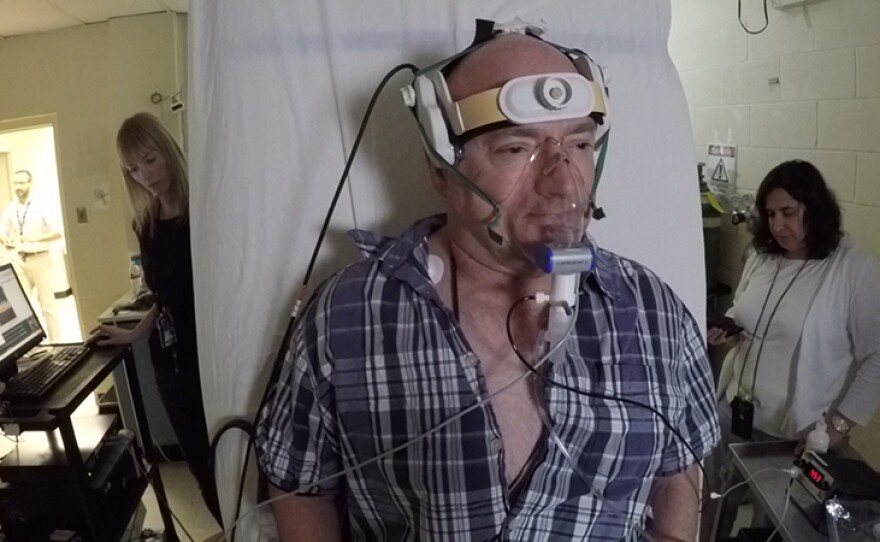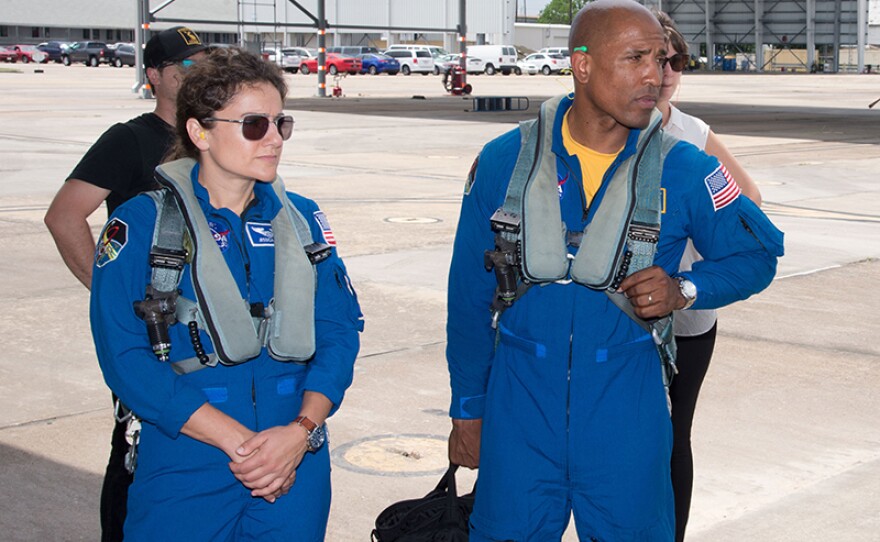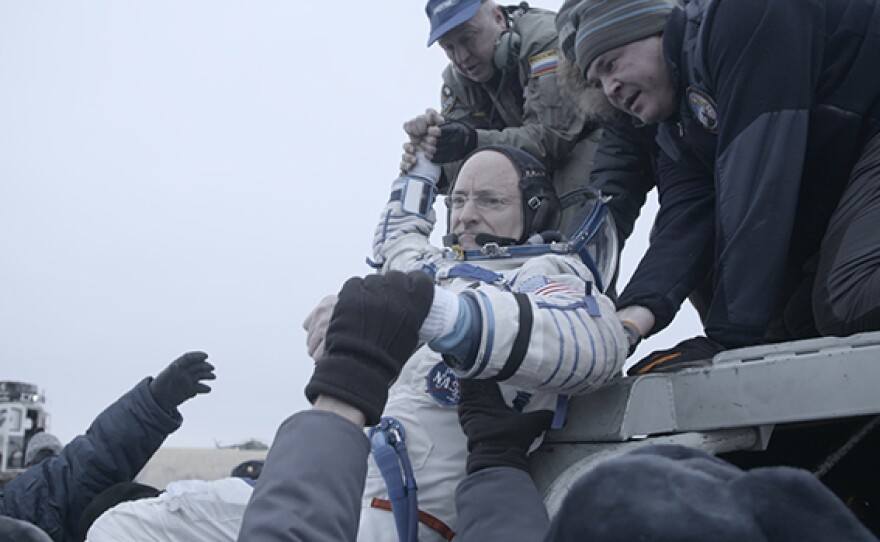Wednesday, June 5, 2024 at 9:30 p.m. on KPBS TV / Stream now with KPBS Passport!
“Beyond A Year In Space,” the follow up to Emmy® Award-winning film “A Year In Space,” chronicles astronaut Scott Kelly’s return and adjustment to life on Earth after spending 12 months on the International Space Station (ISS), the longest space mission in American history. Exploring the effects of long-term space travel on the human body, the film also introduces the next generation of astronauts currently training to leave Earth’s orbit and travel into deep space.
The film follows Kelly’s homecoming and long-awaited reunion with his family in Texas after his record-breaking stay in space with Russian cosmonaut Mikhail Kornienko. The film also tracks the extensive medical testing undergone by Scott and his brother and fellow astronaut, Mark Kelly.

As identical twins, the brothers presented NASA with the extraordinary opportunity of conducting experiments on two individuals who have the same genetic makeup but spent the year in vastly different environments. The data from the twins study will help NASA determine what it will take for humans to endure long-duration space travel in preparation for a mission to Mars, an unprecedented three-year journey.
Although Scott maintained a rigorous exercise program in space, the physical toll of the voyage is evident upon his return as he suffers from sore muscles, stiff joints, flu-like symptoms, skin sensitivity and inflammation.
“Gravity definitely gives you a beat down when you get back,” he said. “My feet still bother me some — I didn’t walk on them for a year!”
"Beyond A Year In Space" introduces two new astronauts preparing to venture farther than humankind has ever gone: biologist Jessica Meir and former Navy pilot Victor Glover, and provides a behind-the-scenes look at how they are training to go the distance.

While first-generation astronauts were mostly “top guns” chosen for their experience in flying untested vehicles, the new generation is a diverse team with a wide variety of backgrounds and skill sets.
The film follows Meir and Glover at NASA and at home, exploring their lives as astronauts and as individuals as each expresses what it means to carry on the legacy of the astronauts who came before them.
“When I was backing away from that space station I was reflecting on the fact that we built this space station in low-Earth orbit,” said Kelly. “It’s the size of a football field — a million pounds. I think it’s the hardest thing people have ever done. I feel very strongly that if we can do this, we can do anything. As future explorers, I would say if we decide we want to go to Mars, we can go to Mars.”
Featuring TIME’s Jeffrey Kluger, science journalist Miles O’Brien, NASA scientists, engineers and doctors, and a special appearance by Apollo 13 astronaut Jim Lovell, "Beyond A Year In Space" provides historical background on space exploration and connects the experiences of the earliest astronauts on manned space flights to those paving the way for the future of space exploration today.
Premiered in 2017 on PBS.
Watch On Your Schedule: This episode is available to stream with KPBS Passport, a benefit for members supporting KPBS at $60 or more yearly, using your computer, smartphone, tablet, Roku, AppleTV, Amazon Fire or Chromecast. Learn how to activate your benefit now.
With the PBS Video App, you can watch your favorite and local station shows. Download it for free on your favorite device. The app allows you to catch up on recent episodes and discover award-winning shows.
Join The Conversation:
PBS is on Facebook, Instagram #BeyondYearinSpacePBS
NASA Astronaut Scott Kelly is on Facebook, Instagram
Captain Mark Kelly is on Facebook
Credits: TIME, owned by Time Inc., created A YEAR IN SPACE in 2015 as a yearlong, 12-part digital video series, produced by TIME’s supervising producer Jonathan Woods and directed by Shaul Schwarz. The episodes can be found on Time.com/space. "Beyond A Year In Space" is produced by TIME’S Red Border Films for PBS in association with Reel Peak Films and Room 608. © 2017 TIME’S Red Border Films and PBS. All Rights Reserved.





